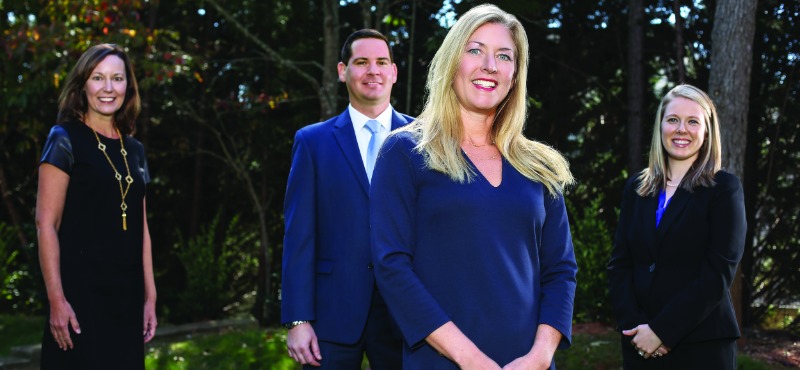When a witness is hostile, an adverse party, or identified with an adverse party, we can tell our client’s story on direct using leading questions. Our job as trial lawyers is to present information to judges and juries that helps them reach a decision. The attention span of our decision-maker is something we must consider in every trial. Judges and juries reasonably expect an efficient presentation of important information to help them reach their conclusion. In today’s society, thirty-minute tv shows and thirty-second commercials have conditioned our attention spans. Most shows provide seven minutes of content before breaking for a commercial. Seven minutes is generally the maximum time we can plan to hold the attention of the Judge or Jury on a single topic. Perceived importance of each topic is associated with when the topic is brought up and how much time is devoted to discussion of the topic. With advance preparation, leading questions are a powerful tool for us to efficiently deliver key facts and keep the decision-maker’s attention.
In trial, we ask questions very differently to friendly witnesses than to hostile witnesses, because we have different goals for those witnesses. We ask open-ended questions to friendly witnesses, and we ask leading questions to witnesses against us. 12 O.S. § 2611(D) tells us,
Leading questions should not be used on the direct examination of a witness except as may be necessary to develop the witness’s testimony. Leading questions should ordinarily be permitted on cross-examination. When a party calls a hostile witness, an adverse party, or a witness identified with an adverse party, leading questions may be used on direct examination.
This rule helps our witnesses tell their story in response to open-ended questions, and the rule recognizes what we all know: “Cross-examination is the greatest legal engine ever invented for the discovery of truth.” John H. Wigmore, quoted in Lilly v. Virginia, 527 U.S. 116 (1999). The goal with friendly witnesses is for the story to be told, facts to be communicated and a connection to be made between the witness and the factfinder. Open-ended questions are the best method to accomplish these goals. Conversely, with adverse and hostile witnesses, our goals are to establish facts that help our case or hurt theirs, impeach the witness, or show bias. These goals are best accomplished through the use of leading questions.
By permitting us to lead hostile witnesses on direct, 12 O.S. § 2611(D) gives us a powerful tool for dealing with witnesses who may not want to fully cooperate in telling our client’s story even though the facts of our client’s story are true. The Oklahoma Supreme Court endorsed this approach in strong terms in the case of Three M Investments, Inc., v. Ahrend Co., 827 P.2d 1324, 1992, OK 33. Three M was the plaintiff in the lawsuit. Id. at ¶ 4. Three M’s lawyer recognized and took advantage of the benefit of 12 O.S. § 2611(D), calling defendant Ahrend on direct in Three M’s case-in-chief. Id. at ¶ 17. Because Ahrend was the defendant, the trial court allowed Three M’s lawyer to use leading questions. Id. This made Ahrend’s lawyer very upset, because he did not understand the rule or its purpose. Id. at ¶ 23. Once Three M’s lawyers were finished, Ahrend’s lawyer was even more upset when he was not allowed to lead Ahrend client on “cross-examination.” Id. at ¶¶ 17-18. Ahrend appealed the issue.
The Oklahoma Supreme Court firmly upheld the trial court and gave a detailed analysis of the purpose and policy behind 12 O.S. § 2611(D). Concerning calling the opposing party in direct and leading them, the Oklahoma Supreme Court said we are entitled to do it:
The intent of the statute is that litigants are entitled to call the opposing party as a witness in the former's case in chief. Inherently, that witness will be adverse to the case the litigant is trying to prove. Thus, the litigant is entitled to use leading questions to elicit the testimony from the witness.
Ahrend at ¶ 21. The Oklahoma Supreme Court went on to say that when we take the initiative and call the opposing party and use leading questions, the opposing party’s lawyer may not use leading questions of their client. Id. at ¶ 22. “[T]he statute's intent is not to allow counsel for one litigant to use leading questions to steer that litigant in the direction counsel wants them to go. The Evidence Subcommittee's Notes clearly indicate that § 2611 was not intended to allow such a result.” Id.
The rule helps everyone. When we are able to use leading questions, we can deliver facts efficiently, rather than in a narrative, open-ended manner. The judge and jury benefit because efficiency means we are not wasting their time. We benefit because we can deliver facts quickly for our decision-makers’ short attentions spans, and our story is told through adverse witnesses with a higher degree of credibility -- they wouldn’t admit the fact unless it were true. Finally, we benefit when the opposing party’s lawyer must present their facts in a narrative way, using open-ended questions, rather than the unfair use of leading questions for their client.
Deciding whether or not to call the opposing party in our case-in-chief is one of many choices we have to make before trial. A justifiable fear about doing so is that the opposing party may be able tell its version of the facts and take over the case. Leading questions minimize that risk and give us the power to establish important, favorable facts through adverse witnesses on direct examination.


















